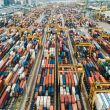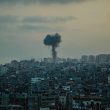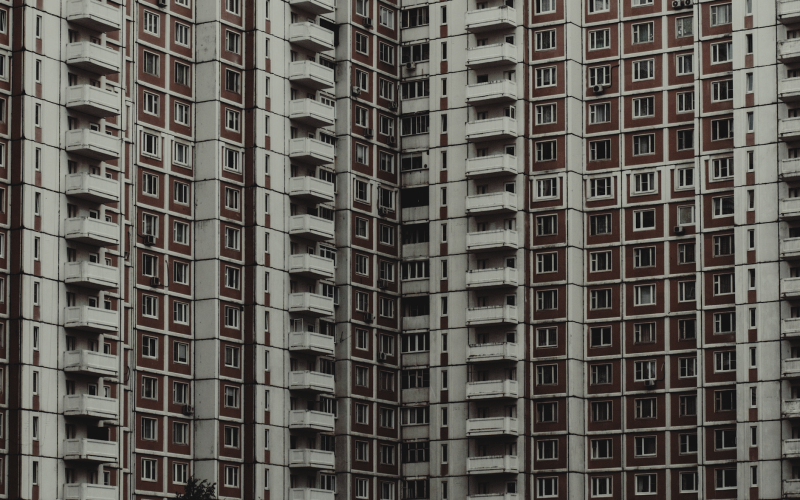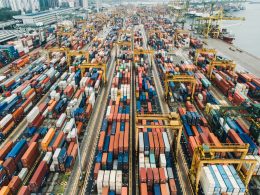Table of Contents Show
Russia’s Aggression Towards Ukraine: An Ongoing Crisis
Russia’s aggression towards Ukraine has been a highly contentious issue in international politics. The conflict dates back to 2014, when pro-Russian separatists declared independence from the Ukrainian government. This crisis has resulted in the loss of thousands of lives and the displacement of hundreds of thousands of people. To understand the roots of this conflict, it is important to explore who Vladimir Putin is, how he rose to power, and the factors that contributed to the escalation of tensions.
Vladimir Putin: Rise to Power
Vladimir Putin, the current president of Russia, has held power since 2000. Born in Leningrad (now Saint Petersburg) in 1952, Putin studied law at Leningrad State University, graduating in 1975. After graduation, he joined the KGB, serving as a foreign intelligence officer until the Soviet Union collapsed in 1991.
Following his exit from the KGB, Putin entered politics in the 1990s. He held various governmental positions, including head of the Federal Security Service, the successor to the KGB. In 1999, Russian President Boris Yeltsin appointed him as prime minister. When Yeltsin resigned later that year, Putin became acting president and was subsequently elected in 2000. Since then, he has remained in power, alternating between the roles of president and prime minister.
Controversial Leadership
Putin’s rule in Russia has been marked by numerous controversial decisions. He has been accused of suppressing political opposition, undermining democratic institutions, and consolidating his control over Russia’s political system. Furthermore, his handling of the Russian economy has faced criticism, particularly as the country has struggled due to declining oil prices and sanctions imposed by Western nations.
Among Putin’s most prominent adversaries are figures like Alexei Navalny, a well-known anti-corruption activist, and Mikhail Khodorkovsky, a former oligarch. Both have faced harassment, arrest, and imprisonment under Putin’s regime. Navalny, for instance, was arrested in January 2021 upon his return to Russia from Germany, where he had been recovering from poisoning with a nerve agent.
Russia-Ukraine Conflict: The 2014 Crisis and Annexation of Crimea
The conflict between Russia and Ukraine began in 2014 when pro-Russian separatists in eastern Ukraine declared independence from the Ukrainian government. Russia supported these separatists by providing military and financial aid. That same year, Russia annexed Crimea, claiming the region had historically been part of Russia and pointing to its predominantly Russian-speaking population.
The annexation of Crimea was widely condemned by the international community, which viewed it as a violation of international law. In response, the United States and the European Union imposed economic sanctions on Russia, significantly impacting the Russian economy. The fighting between Ukrainian government forces and Russian-backed separatists in eastern Ukraine has continued since, leading to thousands of deaths and the displacement of many more. Ukraine, struggling to defend itself due to years of neglect and corruption, has found itself at a military disadvantage.
The Importance of Crimea and the International Response
The annexation of Crimea has been a pivotal factor in the ongoing conflict. Ukraine, once a close ally of Russia, lost Crimea in 1954 when it was transferred to Ukrainian control under Soviet rule. Russia claims that the annexation was necessary to protect the rights of ethnic Russians in Crimea, who form the majority of the population.
The international community, however, strongly condemned the move. Many nations imposed further economic sanctions on Russia, with the United States and the European Union leading efforts to pressure Russia into withdrawing from Crimea and halting its support for separatist forces in eastern Ukraine. Despite these efforts, the conflict remains unresolved, with neither side achieving a decisive victory.
Ukraine’s Response and the Future of the Conflict
In response to Russian aggression, Ukraine has taken steps to modernize and strengthen its military. The country has received military aid from several nations, including the United States and Canada. Despite this support, the conflict remains at a stalemate, with ongoing fighting and no clear resolution in sight.
Russia’s goals in Ukraine have been debated among analysts. Some argue that Russia seeks to reassert dominance in the region and prevent Ukraine from aligning with Western countries. Others suggest that the conflict is part of a broader effort by Putin to consolidate his power within Russia.
There is growing concern that the conflict could escalate into a larger regional war, drawing in neighboring countries such as Poland and Romania. NATO has expressed its support for Ukraine, and this backing may be perceived by Russia as a direct threat to its security.
Humanitarian and Economic Impacts
The ongoing conflict has had devastating consequences for the people of Ukraine. Thousands have lost their lives, and many more have been displaced from their homes, forced to seek refuge in other parts of the country or abroad. The region has also suffered economically, with a lack of investment and job opportunities contributing to the crisis.
Potential Outcomes of the Conflict
There are several potential outcomes for the Russia-Ukraine conflict. One possibility is that the fighting could continue indefinitely, with neither side gaining a decisive advantage. Another potential scenario involves a peace agreement, possibly mediated by international parties. However, any peace settlement would likely be difficult to achieve due to the deep-seated mistrust between both sides.
In conclusion, the conflict between Russia and Ukraine remains a complex and volatile issue. While diplomatic efforts have been made to resolve the situation, the ongoing fighting and geopolitical tensions suggest that the crisis is far from over, with no clear end in sight.





